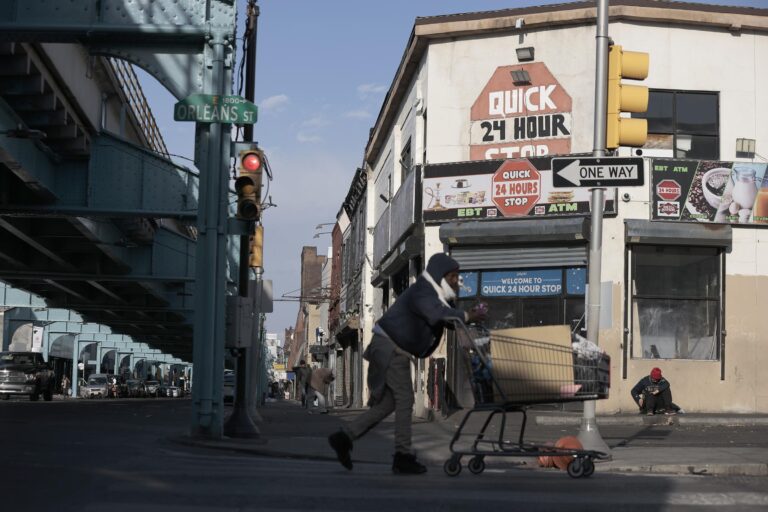Philadelphia Businesses Call for Reevaluation of Kensington Curfew Expansion
As the city of Philadelphia prepares to enforce an extended curfew in the Kensington neighborhood starting tonight, numerous local business organizations are urging city officials to reconsider or delay the policy. These groups warn that the curfew, intended to enhance public safety, could inadvertently undermine economic recovery efforts in a community still grappling with years of financial hardship. They argue that limiting operating hours and reducing customer presence during critical evening periods may stifle growth and deter investment in the area.
Primary Issues Raised by Business Advocates
- Decline in pedestrian traffic resulting in diminished sales for small enterprises
- Heightened risk of confrontations between enforcement personnel and residents or patrons
- Potentially damaging the neighborhood’s reputation, discouraging future business ventures
| Organization | Stance on Curfew | Core Concern |
|---|---|---|
| Kensington Business Network | Opposes Expansion | Loss of evening revenue |
| Philadelphia Merchants Association | Requests Delay | Access for customers |
| Small Business Advocacy Group | Seeks Policy Review | Long-term economic sustainability |
Economic and Social Concerns Underpin Opposition to Curfew
Business leaders in Kensington express deep worries that the curfew could exacerbate economic challenges by restricting the hours during which many small businesses thrive. Evening commerce, a vital component of the local economy, may suffer as customers avoid areas with limited accessibility. This could accelerate economic stagnation in a neighborhood still recovering from decades of disinvestment and social challenges.
Community advocates also stress the importance of fostering trust and cooperation between residents and law enforcement. They caution that imposing strict curfews without community input risks alienating residents and escalating tensions. Key points of concern include:
- Disruption to daily life: Residents worry that curfew restrictions interfere with essential activities such as commuting, family obligations, and access to services.
- Potential for increased conflict: There is apprehension that enforcement could lead to more frequent confrontations, undermining the goal of enhancing safety.
- Need for holistic solutions: Critics advocate for comprehensive community support programs rather than relying solely on restrictive curfews.
| Stakeholder | Primary Concern | Recommended Action |
|---|---|---|
| Business Coalitions | Economic downturn | Halt curfew expansion, assess effects |
| Community Representatives | Neighborhood relations | Engage in inclusive discussions |
| Local Residents | Restrictions on movement | Implement flexible curfew schedules |
Expert Insights: Integrated Strategies for Safety and Economic Growth
Experts specializing in urban development and public safety emphasize the necessity of a balanced, collaborative approach to address Kensington’s challenges. They recommend that city officials, law enforcement, business leaders, and community members work together to design policies that protect residents while supporting economic vitality.
Among their key suggestions are:
- Utilizing data analytics: Regularly monitor crime statistics and economic performance to adjust curfew parameters responsively.
- Fostering community participation: Create forums for ongoing dialogue that incorporate feedback from diverse neighborhood stakeholders.
- Providing targeted support: Offer financial aid and safety initiatives to help businesses maintain operations during restricted hours.
| Approach | Effect on Public Safety | Economic Impact |
|---|---|---|
| Enforced Curfew Hours | Reduces nighttime offenses | Limits business operating times |
| Community-Led Patrols | Improves local security | Encourages spending within neighborhood |
| Business Assistance Programs | Supports safer environments indirectly | Helps sustain small businesses financially |
City Leaders Consider Community Input Prior to Curfew Enforcement
Philadelphia officials are currently reviewing extensive feedback from a broad spectrum of stakeholders—including residents, business owners, and advocacy groups—before finalizing the curfew’s implementation. Concerns focus on the potential economic repercussions, public safety outcomes, and the importance of maintaining community trust. Many business representatives stress the need for clear communication regarding curfew boundaries and enforcement schedules to minimize disruption.
- Businesses seek transparent guidelines on curfew zones and timing.
- Community members call for enhanced safety measures beyond curfew enforcement.
- Public safety advocates emphasize fair and consistent application to avoid discriminatory practices.
| Group | Main Concern | Proposed Solution |
|---|---|---|
| Business Organizations | Economic effects during curfew | Postpone or adjust curfew plans |
| Neighborhood Residents | Safety and equitable enforcement | Increase police presence and community initiatives |
| Civil Rights Advocates | Concerns over rights and fairness | Ensure transparency and accountability in enforcement |
Looking Ahead: The Future of Kensington’s Curfew and Community Wellbeing
As Philadelphia moves forward with the expanded curfew in Kensington, the debate surrounding its consequences remains active. While city officials prioritize reducing crime and enhancing safety, local business groups and residents continue to express concerns about the potential economic and social costs. The resolution of this issue will significantly influence the neighborhood’s trajectory, underscoring the ongoing challenge of harmonizing public security with the needs of businesses and community members. Recent data from similar urban areas suggest that collaborative, adaptive policies tend to yield better outcomes for both safety and economic resilience.








